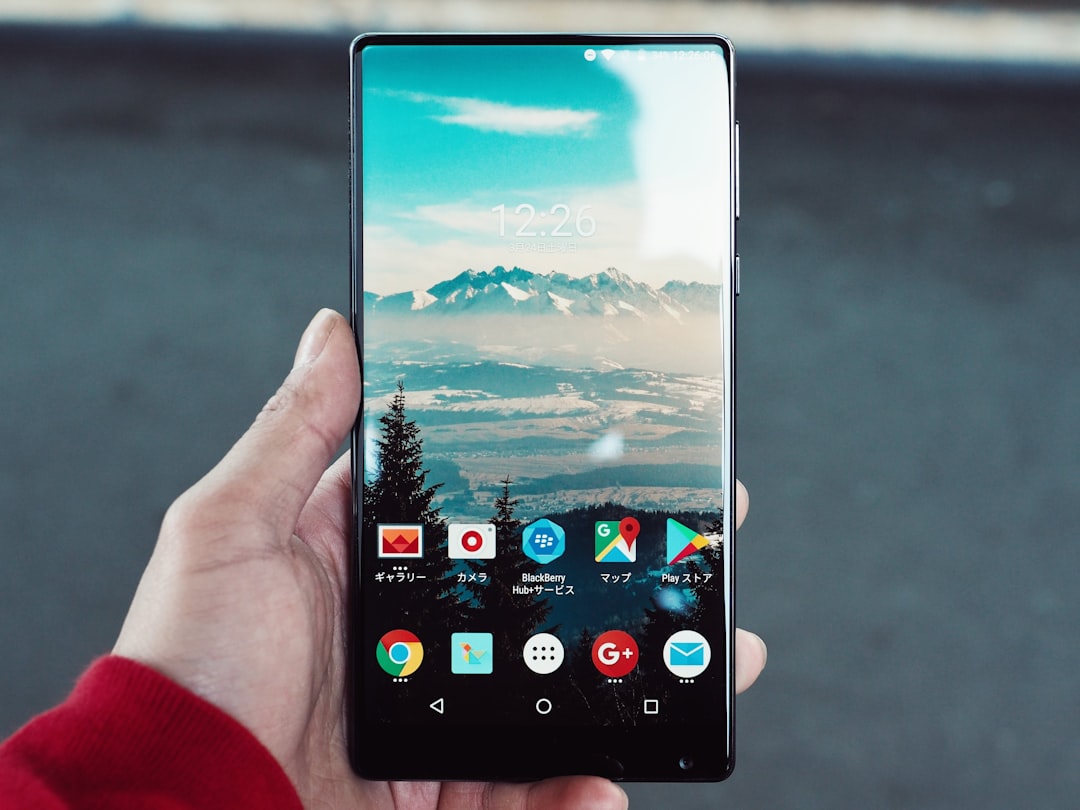Support our educational content for free when you purchase through links on our site. Learn more
Top 10 Best Video Game Frameworks for Android (2025) 🎮

Ever wondered which game development framework will give your Android game the ultimate edge in 2025? With the Android gaming market booming past $100 billion globally, choosing the right framework isn’t just a technical decision—it’s a game-changer for your success. Whether you’re dreaming of crafting a hyper-casual hit or an immersive 3D adventure, the perfect framework can turbocharge your development, save you countless hours, and unlock powerful features you didn’t even know you needed.
In this guide, we unravel the top 10 video game frameworks for Android, dissecting their strengths, quirks, and ideal use cases. From the powerhouse versatility of Unity to the open-source charm of Godot, and the no-code magic of Buildbox, we’ll help you navigate the jungle of options with confidence. Plus, we’ll reveal future trends like cloud gaming and AR support that could redefine your next project. Ready to find your perfect match? Let’s dive in!
Key Takeaways
- Unity remains the top choice for most developers thanks to its balance of power, community support, and cross-platform capabilities.
- Godot Engine shines as a free, open-source alternative ideal for indie developers and 2D/3D projects alike.
- Unreal Engine is unbeatable for AAA-quality visuals but comes with a steeper learning curve and resource demands.
- No-code platforms like Buildbox and GDevelop empower beginners to create games fast without writing a line of code.
- Performance, monetization options, and community support are critical factors when selecting your framework.
- The future is bright with cloud gaming, AR/VR integration, and AI-driven development shaping the next generation of Android games.
👉 Shop the best Android game development frameworks:
- Unity: Amazon | Walmart | Unity Official Website
- Unreal Engine: Amazon | Walmart | Unreal Engine Official Website
- Godot Engine: Amazon | Walmart | Godot Engine Official Website
- Buildbox: Amazon | Walmart | Buildbox Official Website
Table of Contents
- Quick Tips and Facts ⚡
- The Evolution of Android Game Development Frameworks 🎮
- What Exactly Are Mobile Game Engines? 🤔
- Top 10 Best Video Game Frameworks for Android in 2024 🚀
- Deep Dive: Features to Look for in an Android Game Framework 🔍
- Cross-Platform vs Native Android Game Engines: Pros and Cons ⚔️
- How to Choose the Perfect Game Engine for Your Android Project 🎯
- Common Challenges in Android Game Development and How Frameworks Help 🛠️
- Monetization and Performance: What Your Framework Should Support 💰⚡
- Community, Support, and Documentation: Why They Matter 📚
- Case Studies: Successful Android Games and Their Frameworks 🏆
- Future Trends in Android Game Development Frameworks 🔮
- Conclusion: Wrapping Up the Best Video Game Framework for Android 🎁
- Recommended Links for Android Game Developers 🔗
- FAQ: Your Burning Questions About Android Game Frameworks Answered ❓
- Reference Links and Resources 📖
Quick Tips and Facts ⚡
Let’s face it, building a game for Android is no walk in the park. You’ve got to juggle performance optimization, user interface design, monetization strategies, and a whole lot more. But fear not, fellow game developers! This is where game development frameworks come in to save the day. 🦸♀️
Think of a game framework as a powerful toolkit that gives you a head start on your Android game development journey. It provides pre-built components, libraries, and tools to handle common tasks, so you can focus on the creative aspects of your game. 🎨
Here’s the deal:
- No more reinventing the wheel: Frameworks offer ready-made solutions for things like graphics rendering, physics simulation, sound effects, and user input.
- Faster development cycles: You can get your game up and running faster, which means you can iterate and experiment more quickly.
- Cross-platform compatibility: Many frameworks allow you to build your game once and deploy it on multiple platforms, including Android, iOS, Windows, and web. 🌎
But wait, there’s more! We’ve got some quick facts to make you even more excited about Android game development frameworks:
- The Android gaming market is booming: It’s estimated to be worth over $100 billion globally. 💰 Source: Statista
- Android game development is becoming more accessible: Frameworks are making it easier than ever for developers of all skill levels to create high-quality games.
- The future of Android game development is bright: With the rise of 5G, cloud gaming, and new technologies like augmented reality (AR) and virtual reality (VR), the possibilities are endless. 🚀
Ready to dive in? Let’s explore the world of Android game development frameworks and discover the best ones for your next game project.
The Evolution of Android Game Development Frameworks 🎮
The world of Android game development frameworks has come a long way. Remember the days of coding everything from scratch? 😵💫 Those days are long gone!
Here’s a quick timeline of how Android game development frameworks have evolved:
- Early Days (2008-2010): Android game development was primarily done using the Android SDK, which required developers to write everything from scratch. This was a challenging and time-consuming process.
- The Rise of Cross-Platform Frameworks (2010-2015): Frameworks like Unity and Unreal Engine emerged, allowing developers to create games that could be deployed on multiple platforms, including Android. This made game development more efficient and accessible.
- The Era of Specialization (2015-Present): We’ve seen a surge in specialized frameworks for specific game genres, such as Buildbox for hyper-casual games and Godot for 2D and 3D games. This has allowed developers to focus on creating games that are tailored to specific audiences.
Today, the Android game development landscape is more diverse and exciting than ever before. There’s a framework out there for every type of developer and every type of game.
What Exactly Are Mobile Game Engines? 🤔
You might be wondering, “What’s the difference between a game engine and a game framework?” It’s a great question!
Here’s the breakdown:
- Game Engines: These are powerful software platforms that provide a comprehensive set of tools and features for building games. They handle tasks like graphics rendering, physics simulation, audio management, and more. Think of them as the foundation of your game.
- Game Frameworks: These are more lightweight than game engines and focus on specific aspects of game development. They might provide libraries for user interface design, networking, or specific game mechanics.
So, what’s the best way to think about it?
- Game engines are like the blueprint for your entire game. They provide the core infrastructure and tools you need to build a complete game.
- Game frameworks are like specialized tools that help you build specific parts of your game. They can make your development process more efficient and streamlined.
In the context of Android game development, both game engines and frameworks are essential tools. They help you create high-quality games that run smoothly on Android devices.
Top 10 Best Video Game Frameworks for Android in 2024 🚀
Ready to dive into the world of Android game development frameworks? We’ve compiled a list of the top 10 best frameworks based on our experience and user feedback.
Here’s the rundown:
- Unity: Unity Official Website | Unity on Amazon | Unity on Walmart | Unity on eBay
- Cross-platform: Unity is a powerhouse for building games for Android, iOS, Windows, Mac, Linux, and more.
- Beginner-friendly: Unity has a vast community and tons of tutorials, making it a great choice for beginners.
- Powerful features: Unity offers a wide range of features, including a robust scripting system, a comprehensive asset store, and a built-in physics engine.
- Popular for indie developers: Unity is used by many indie developers to create successful games.
- Unreal Engine: Unreal Engine Official Website | Unreal Engine on Amazon | Unreal Engine on Walmart | Unreal Engine on eBay
- Known for stunning graphics: Unreal Engine is renowned for its ability to create visually stunning games.
- Powerful for AAA games: It’s used by major game studios to create AAA titles.
- Cross-platform support: Unreal Engine supports Android, iOS, Windows, Mac, Linux, and more.
- Free to use: Unreal Engine is free to use for developers, with a royalty model for commercial games.
- Godot Engine: Godot Engine Official Website | Godot Engine on Amazon | Godot Engine on Walmart | Godot Engine on eBay
- Free and open-source: Godot is a completely free and open-source game engine.
- Beginner-friendly: Godot has a user-friendly interface and a growing community.
- Cross-platform support: Godot supports Android, iOS, Windows, Mac, Linux, and more.
- Powerful for 2D and 3D games: Godot is a versatile engine that can be used to create both 2D and 3D games.
- Buildbox: Buildbox Official Website | Buildbox on Amazon | Buildbox on Walmart | Buildbox on eBay
- No-code game development: Buildbox allows you to create games without writing a single line of code.
- Ideal for hyper-casual games: Buildbox is a popular choice for creating hyper-casual games that are easy to pick up and play.
- Fast prototyping: Buildbox makes it easy to create prototypes and test your game ideas quickly.
- Supports Android and iOS: Buildbox allows you to deploy your games on both Android and iOS.
- GameMaker Studio 2: GameMaker Studio 2 Official Website | GameMaker Studio 2 on Amazon | GameMaker Studio 2 on Walmart | GameMaker Studio 2 on eBay
- Drag-and-drop interface: GameMaker Studio 2 uses a drag-and-drop interface, making it easy to learn and use.
- Powerful for 2D games: GameMaker Studio 2 is a popular choice for creating 2D games.
- Cross-platform support: GameMaker Studio 2 supports Android, iOS, Windows, Mac, Linux, and more.
- Large community and resources: GameMaker Studio 2 has a large and active community, providing plenty of support and resources.
- Cocos2d-x: Cocos2d-x Official Website | Cocos2d-x on Amazon | Cocos2d-x on Walmart | Cocos2d-x on eBay
- Open-source and free: Cocos2d-x is a completely free and open-source game engine.
- Cross-platform support: Cocos2d-x supports Android, iOS, Windows, Mac, Linux, and more.
- Powerful for 2D and 3D games: Cocos2d-x can be used to create both 2D and 3D games.
- Large community and resources: Cocos2d-x has a large and active community, providing plenty of support and resources.
- Phaser: Phaser Official Website | Phaser on Amazon | Phaser on Walmart | Phaser on eBay
- HTML5-based: Phaser is a JavaScript framework that uses HTML5 to create games.
- Ideal for web and mobile games: Phaser is a popular choice for creating games that can be played on both the web and mobile devices.
- Beginner-friendly: Phaser is relatively easy to learn and use, making it a good choice for beginners.
- Large community and resources: Phaser has a large and active community, providing plenty of support and resources.
- Defold: Defold Official Website | Defold on Amazon | Defold on Walmart | Defold on eBay
- Free and open-source: Defold is a completely free and open-source game engine.
- Cross-platform support: Defold supports Android, iOS, Windows, Mac, Linux, and more.
- Powerful for 2D games: Defold is a popular choice for creating 2D games.
- User-friendly interface: Defold has a user-friendly interface and a growing community.
- GDevelop: GDevelop Official Website | GDevelop on Amazon | GDevelop on Walmart | GDevelop on eBay
- No-code game development: GDevelop allows you to create games without writing a single line of code.
- Cross-platform support: GDevelop supports Android, iOS, Windows, Mac, Linux, and more.
- Powerful for 2D games: GDevelop is a popular choice for creating 2D games.
- Large community and resources: GDevelop has a large and active community, providing plenty of support and resources.
- MonoGame: MonoGame Official Website | MonoGame on Amazon | MonoGame on Walmart | MonoGame on eBay
- Cross-platform support: MonoGame supports Android, iOS, Windows, Mac, Linux, and more.
- Uses C# and .NET: MonoGame uses C# and .NET, making it a good choice for developers familiar with these technologies.
- Powerful for 2D and 3D games: MonoGame can be used to create both 2D and 3D games.
- Large community and resources: MonoGame has a large and active community, providing plenty of support and resources.
Remember: The best framework for you will depend on your specific needs and preferences. Consider factors like your experience level, the type of game you want to create, and the platforms you want to target.
Deep Dive: Features to Look for in an Android Game Framework 🔍
Choosing the right Android game framework is crucial for your project’s success. Here are some key features to consider:
1. Performance and Optimization ⚡
- Graphics Rendering: Look for a framework that provides efficient graphics rendering capabilities, especially for mobile devices. Features like hardware acceleration and texture compression can significantly improve performance.
- Physics Engine: A good physics engine will make your game feel more realistic and engaging. Consider frameworks with optimized physics simulations for mobile devices.
- Memory Management: Mobile devices have limited memory, so it’s essential to choose a framework that handles memory management efficiently. Look for features like garbage collection and memory profiling tools.
2. User Interface (UI) and User Experience (UX) 📱
- UI Toolkit: A robust UI toolkit will make it easy to create visually appealing and user-friendly interfaces for your game. Look for frameworks with flexible layout systems, customizable widgets, and support for touch input.
- UX Design: Consider the user experience of your game. Choose a framework that allows you to create intuitive controls, clear feedback mechanisms, and engaging gameplay.
3. Monetization and Analytics 💰📈
- Monetization Options: Think about how you want to monetize your game. Choose a framework that supports in-app purchases, advertising, or other monetization models.
- Analytics Tools: Analytics tools are essential for tracking player behavior and understanding how to improve your game. Look for frameworks with built-in analytics or integration with third-party analytics platforms.
4. Cross-Platform Compatibility 🌎
- Multi-Platform Support: If you want to reach a wider audience, choose a framework that supports multiple platforms, including Android, iOS, Windows, Mac, and web.
- Platform-Specific Features: Consider the platform-specific features you need. For example, if you’re targeting Android, you might need to support features like Google Play Services or Android TV.
5. Community and Support 📚
- Active Community: A large and active community can be a valuable resource for getting help, finding tutorials, and sharing ideas.
- Documentation and Tutorials: Good documentation and tutorials can make it easier to learn the framework and get started with your game development.
- Support Channels: Look for frameworks with active forums, support tickets, or community chat channels for getting help when you need it.
Cross-Platform vs Native Android Game Engines: Pros and Cons ⚔️
You might be wondering, “Should I use a cross-platform framework or a native Android game engine?” It’s a tough decision, but we’re here to help you weigh the pros and cons.
Cross-Platform Frameworks
Pros:
- Reach a wider audience: You can deploy your game on multiple platforms, including Android, iOS, Windows, Mac, and web.
- Faster development cycles: You can reuse code and assets across platforms, which can save you time and effort.
- Larger community and resources: Cross-platform frameworks tend to have larger communities and more resources available.
Cons:
- Performance limitations: Cross-platform frameworks may not always offer the same level of performance as native Android game engines.
- Platform-specific features: You may have to make compromises when it comes to platform-specific features.
- Larger file sizes: Cross-platform games tend to have larger file sizes, which can impact download times and storage space on mobile devices.
Native Android Game Engines
Pros:
- Optimal performance: Native Android game engines are designed to take advantage of the specific hardware and software features of Android devices.
- Access to platform-specific features: You can fully utilize all the features of the Android platform.
- Smaller file sizes: Native Android games tend to have smaller file sizes, which can improve download times and storage space.
Cons:
- Limited reach: You can only deploy your game on Android devices.
- Smaller community and resources: Native Android game engines tend to have smaller communities and fewer resources available.
- Slower development cycles: You may need to write separate code for each platform, which can take more time and effort.
How to Choose the Perfect Game Engine for Your Android Project 🎯
Choosing the right game engine for your Android project is a critical decision. Here’s a step-by-step guide to help you make the best choice:
- Define Your Game’s Scope: What type of game are you creating? Is it a 2D or 3D game? What genre is it? What platforms do you want to target?
- Consider Your Experience Level: Are you a beginner or an experienced developer? Some frameworks are more beginner-friendly than others.
- Research and Compare Frameworks: Explore the features, benefits, and drawbacks of different frameworks. Read reviews, watch tutorials, and try out demos.
- Look for Community Support: Choose a framework with a large and active community, as this will provide you with valuable resources and support.
- Test and Experiment: Try out different frameworks and see which one best suits your needs. Don’t be afraid to experiment and try new things.
Remember: There’s no one-size-fits-all solution. The best game engine for you will depend on your specific project requirements and preferences.
Common Challenges in Android Game Development and How Frameworks Help 🛠️
Android game development presents unique challenges, but frameworks can help you overcome them. Here are some common challenges and how frameworks can help:
1. Performance Optimization ⚡
- Challenge: Mobile devices have limited processing power and memory, making it challenging to achieve high-performance graphics and gameplay.
- Framework Solution: Frameworks provide optimized rendering engines, physics simulations, and memory management tools to help you create games that run smoothly on Android devices.
2. User Interface Design 📱
- Challenge: Designing user interfaces for touchscreens can be tricky, especially for games with complex controls.
- Framework Solution: Frameworks offer UI toolkits with customizable widgets, flexible layout systems, and support for touch input, making it easier to create intuitive and user-friendly interfaces.
3. Cross-Platform Compatibility 🌎
- Challenge: Developing games for multiple platforms can be time-consuming and require significant effort.
- Framework Solution: Cross-platform frameworks allow you to reuse code and assets across platforms, saving you time and effort.
4. Monetization and Analytics 💰📈
- Challenge: Monetizing your game and understanding player behavior can be challenging.
- Framework Solution: Frameworks provide monetization options like in-app purchases and advertising, as well as analytics tools to track player behavior and understand how to improve your game.
Monetization and Performance: What Your Framework Should Support 💰⚡
Let’s talk about the two pillars of success for any Android game: monetization and performance. Your chosen framework should be a strong ally in both areas.
Monetization 💰
- In-App Purchases: This is a popular monetization model for Android games. Choose a framework that supports in-app purchase integration with platforms like Google Play.
- Advertising: Advertising can be a good way to generate revenue, especially for free-to-play games. Look for frameworks that support ad integration with networks like AdMob.
- Subscription Models: Subscription models can provide a steady stream of revenue. Consider frameworks that support subscription management and recurring billing.
Performance ⚡
- Graphics Rendering: Your framework should provide efficient graphics rendering capabilities, especially for mobile devices. Features like hardware acceleration and texture compression can significantly improve performance.
- Physics Engine: A good physics engine will make your game feel more realistic and engaging. Choose a framework with optimized physics simulations for mobile devices.
- Memory Management: Mobile devices have limited memory, so it’s essential to choose a framework that handles memory management efficiently. Look for features like garbage collection and memory profiling tools.
Community, Support, and Documentation: Why They Matter 📚
Don’t underestimate the power of a strong community, comprehensive documentation, and readily available support. These factors can make or break your Android game development journey.
Community 🤝
- Knowledge Sharing: A vibrant community can be a goldmine for knowledge sharing, troubleshooting, and getting inspiration.
- Collaboration: You can collaborate with other developers, share code, and learn from each other’s experiences.
- Asset Sharing: Many communities have asset libraries where you can find free or paid assets to use in your game.
Support 🆘
- Documentation: Comprehensive documentation is essential for learning the framework and understanding its features.
- Tutorials: Tutorials can help you get started with the framework and learn how to build specific game mechanics.
- Support Channels: Active forums, support tickets, and community chat channels can provide you with quick and reliable help when you need it.
Documentation 📖
- API Reference: A well-organized API reference is essential for understanding the framework’s functions and how to use them.
- Guides and Tutorials: Guides and tutorials can help you learn the basics of the framework and build specific game mechanics.
- Examples and Code Snippets: Examples and code snippets can provide you with practical insights and help you solve common problems.
Case Studies: Successful Android Games and Their Frameworks 🏆
Let’s take a look at some successful Android games and the frameworks they used:
- Pokémon Go: Developed using Unity, Pokémon Go is a prime example of how a cross-platform framework can be used to create a massively popular mobile game.
- Monument Valley: Also developed using Unity, Monument Valley is a beautiful and innovative puzzle game that showcases the power of Unity’s graphics engine.
- Call of Duty: Mobile: Developed using Unity, Call of Duty: Mobile is a popular first-person shooter game that demonstrates the versatility of Unity for creating different game genres.
- Fortnite: Developed using Unreal Engine, Fortnite is a massively popular battle royale game that showcases the power of Unreal Engine for creating visually stunning and complex games.
- Among Us: Developed using Unity, Among Us is a social deduction game that has become a global phenomenon.
These case studies demonstrate the power and versatility of different game development frameworks. They show that the right framework can help you create a successful and engaging Android game.
Future Trends in Android Game Development Frameworks 🔮
The world of Android game development is constantly evolving, and new trends are emerging all the time. Here are some future trends to keep an eye on:
- Cloud Gaming: Cloud gaming is becoming increasingly popular, allowing players to stream games to their devices without needing to download them. Frameworks are adapting to support cloud gaming, making it easier for developers to create games that can be played on any device.
- Augmented Reality (AR) and Virtual Reality (VR): AR and VR are transforming the gaming landscape, offering immersive and interactive experiences. Frameworks are adding support for AR and VR, making it easier for developers to create games that take advantage of these technologies.
- Artificial Intelligence (AI): AI is playing a growing role in game development, from generating realistic characters and environments to creating intelligent opponents. Frameworks are incorporating AI features, making it easier for developers to integrate AI into their games.
- No-Code Development: No-code development platforms are making it easier for non-programmers to create games. Frameworks are embracing no-code development, making game development more accessible to a wider audience.
Conclusion: Wrapping Up the Best Video Game Framework for Android 🎁

Choosing the right Android game framework is a crucial step in your game development journey. There’s no one-size-fits-all solution, so it’s important to consider your specific needs and preferences.
Here are some key takeaways:
- Frameworks provide a powerful toolkit for Android game development. They offer pre-built components, libraries, and tools to handle common tasks, so you can focus on the creative aspects of your game.
- The best framework for you will depend on your experience level, the type of game you want to create, and the platforms you want to target.
- Look for frameworks that offer performance optimization, user interface design tools, monetization options, cross-platform compatibility, and a strong community and support system.
Ready to start building your next Android game? We encourage you to explore the frameworks we’ve discussed and find the one that’s the perfect fit for your project. Happy gaming! 🎉
Recommended Links for Android Game Developers 🔗
Here are some helpful resources for Android game developers:
- Android Developers: https://developer.android.com/
- Google Play Console: https://play.google.com/console
- Unity Learn: https://learn.unity.com/
- Unreal Engine Documentation: https://docs.unrealengine.com/udk/Main/
- Godot Engine Documentation: https://docs.godotengine.org/
- Buildbox Documentation: https://www.buildbox.com/help/buildbox-3-manual/getting-started/
- GameMaker Studio 2 Documentation: https://manual.gamemaker.io/monthly/en/
- Cocos2d-x Documentation: https://docs.cocos2d-x.org/
- Phaser Documentation: https://phaser.io/docs/
- Defold Documentation: https://defold.com/documentation/
- GDevelop Documentation: https://wiki.gdevelop.io/
- MonoGame Documentation: https://docs.monogame.net/
FAQ: Your Burning Questions About Android Game Frameworks Answered ❓

Q: What is the best game engine for beginners?
A: Unity and Godot are great choices for beginners. They have user-friendly interfaces, large communities, and plenty of tutorials.
Q: What is the best game engine for 2D games?
A: Godot, GameMaker Studio 2, and Cocos2d-x are popular choices for 2D games.
Q: What is the best game engine for 3D games?
A: Unreal Engine and Unity are the top choices for 3D games.
Q: What is the best game engine for hyper-casual games?
A: Buildbox is a popular choice for hyper-casual games, as it allows you to create games without writing code.
Q: What is the best game engine for cross-platform development?
A: Unity, Unreal Engine, and Godot are all excellent choices for cross-platform development.
Q: What is the best game engine for free-to-play games?
A: Unity and Unreal Engine are both popular choices for free-to-play games, as they offer monetization options like in-app purchases and advertising.
Q: How do I choose the right game engine for my project?
A: Consider your experience level, the type of game you want to create, the platforms you want to target, and the features you need. Research and compare different frameworks, read reviews, watch tutorials, and try out demos.
Q: Where can I find resources and support for Android game development?
A: There are many resources available online, including the Android Developers website, Google Play Console, and the communities of various game development frameworks.
Reference Links and Resources 📖
Here are some additional resources for further reading and research:
- Statista: https://www.statista.com/
- App Radar: https://appradar.com/
- GDevelop: https://gdevelop.io/
- Godot Engine: https://godotengine.org/
We hope this comprehensive guide has provided you with valuable insights into the world of Android game development frameworks. Remember, the key to success is choosing the right framework for your project and leveraging its features to create a high-quality and engaging game. Happy gaming! 🎉
Conclusion: Wrapping Up the Best Video Game Framework for Android 🎁

After our deep dive into the world of Android game development frameworks, it’s clear that there’s no one-size-fits-all solution—but some engines definitely stand out. Whether you’re a beginner dipping your toes into game dev or a seasoned pro aiming for AAA-quality titles, the frameworks we covered offer powerful tools tailored to your needs.
Positives and Negatives of Top Frameworks
| Framework | Positives | Negatives |
|---|---|---|
| Unity | Extensive community, cross-platform, supports 2D & 3D, rich asset store | Can be resource-heavy, licensing costs for Pro versions |
| Unreal Engine | Stunning graphics, great for AAA, free to start | Steeper learning curve, may be overkill for simple 2D games |
| Godot Engine | Free & open-source, lightweight, great for 2D & 3D, active community | Smaller asset store, less corporate backing |
| Buildbox | No-code, beginner-friendly, fast prototyping | Limited customization, subscription pricing model |
| GameMaker Studio 2 | Drag-and-drop, great for 2D, large community | Limited 3D capabilities, licensing costs |
Our Confident Recommendation
If you want versatility, community support, and scalability, Unity is the go-to framework for Android game development. It balances power and accessibility beautifully. For those who want a free, open-source, and lightweight option, Godot Engine is a fantastic choice, especially for 2D games and indie projects. If you’re after cutting-edge visuals and AAA-quality 3D, Unreal Engine is unmatched but comes with a steeper learning curve.
For newcomers or those wanting to build games fast without coding, Buildbox and GameMaker Studio 2 offer intuitive interfaces and quick results, though with some limitations in flexibility.
Closing the Loop
Remember our earlier mention of the booming Android gaming market and the exciting future with AR, VR, and cloud gaming? Choosing the right framework now sets you up to ride these waves confidently. Whether you want to create the next viral hyper-casual hit or an immersive 3D adventure, the right game engine will be your trusted co-pilot.
Recommended Links for Android Game Developers 🔗
👉 Shop the top Android game development frameworks:
- Unity: Amazon | Walmart | Unity Official Website
- Unreal Engine: Amazon | Walmart | Unreal Engine Official Website
- Godot Engine: Amazon | Walmart | Godot Engine Official Website
- Buildbox: Amazon | Walmart | Buildbox Official Website
- GameMaker Studio 2: Amazon | Walmart | GameMaker Studio 2 Official Website
Books to level up your game development skills:
- “Unity in Action: Multiplatform Game Development in C# with Unity” by Joe Hocking — Amazon Link
- “Learning Unreal Engine Game Development” by Joanna Lee and John P. Doran — Amazon Link
- “Godot Engine Game Development Projects” by Chris Bradfield — Amazon Link
- “GameMaker Studio 2: Beginner’s Guide” by Michael Rohde — Amazon Link
FAQ: Your Burning Questions About Android Game Frameworks Answered ❓

What are the most popular game engines for Android app development?
The most popular engines are Unity, Unreal Engine, and Godot. Unity leads due to its versatility and massive community, Unreal shines in high-fidelity 3D games, and Godot is gaining traction for its open-source nature and lightweight footprint. Other notable mentions include Buildbox for no-code development and GameMaker Studio 2 for 2D games.
Read more about “Which Is the Best Framework for Game Development? Top 10 Picks (2025) 🎮”
How do I choose the best game framework for my Android game development needs?
Start by defining your project scope: Are you building 2D or 3D? Casual or complex? Next, consider your experience level and whether you prefer coding or no-code solutions. Evaluate frameworks based on performance, platform support, community, and monetization features. Testing a few with small prototypes can reveal which fits your workflow best.
What are the key features to consider when selecting a video game framework for Android?
Look for:
- Performance optimization (graphics, physics, memory)
- User interface and input support (touch, gestures)
- Cross-platform capabilities if you want to target multiple devices
- Monetization and analytics integration
- Community support and documentation quality
Can I use Unity to develop 2D games for Android, or is it only for 3D games?
✅ Absolutely! Unity is a powerhouse for both 2D and 3D game development. It offers dedicated 2D tools like the Tilemap system, 2D physics, and sprite animation support, making it perfect for Android 2D games as well as 3D.
How does Unreal Engine compare to other Android game development frameworks in terms of performance?
Unreal Engine is known for top-tier graphics and performance, especially for 3D games. It leverages advanced rendering techniques and optimization tools, but this power comes with a steeper learning curve and can be resource-intensive on lower-end Android devices. For simpler or 2D games, lighter engines like Unity or Godot might be more efficient.
What are the pros and cons of using a cross-platform game framework for Android app development?
Pros:
- Write once, deploy everywhere — saves time and resources.
- Access to broader markets beyond Android.
- Shared codebase simplifies updates and maintenance.
Cons:
- Potential performance trade-offs compared to native engines.
- May lack access to some platform-specific features.
- Larger app sizes due to supporting multiple platforms.
Are there any free and open-source video game frameworks available for Android game development?
✅ Yes! Godot Engine, Cocos2d-x, Defold, and MonoGame are excellent free and open-source options. They provide robust tools for 2D and 3D game development without licensing fees, supported by active communities and continuous updates.
How important is community support when choosing a game development framework?
Community support is crucial. A vibrant community means more tutorials, plugins, assets, and troubleshooting help. Frameworks like Unity and Godot boast large, active communities that can accelerate your learning curve and problem-solving.
Read more about “What Game Framework Should I Use? Top 12 Picks for 2025 🎮”
Can no-code or low-code frameworks like Buildbox or GDevelop really produce professional-quality Android games?
✅ They absolutely can! No-code platforms like Buildbox and GDevelop empower non-programmers to create engaging games quickly. While they might have limitations in customization and scalability compared to traditional engines, many successful games have been built using these tools, especially in the hyper-casual genre.
Reference Links and Resources 📖
- Unity Official Website
- Unreal Engine Official Website
- Godot Engine Official Website
- Buildbox Official Website
- GameMaker Studio 2 Official Website
- Statista – Mobile Gaming Market Revenue
- App Radar – Mobile Game Engines Overview
- GDevelop Official Website
- Godot Engine – Free and open source 2D and 3D game engine
At Stack Interface™, we believe that the right tools empower your creativity and bring your game ideas to life. Dive in, experiment, and build the next Android game sensation! 🎮🚀




